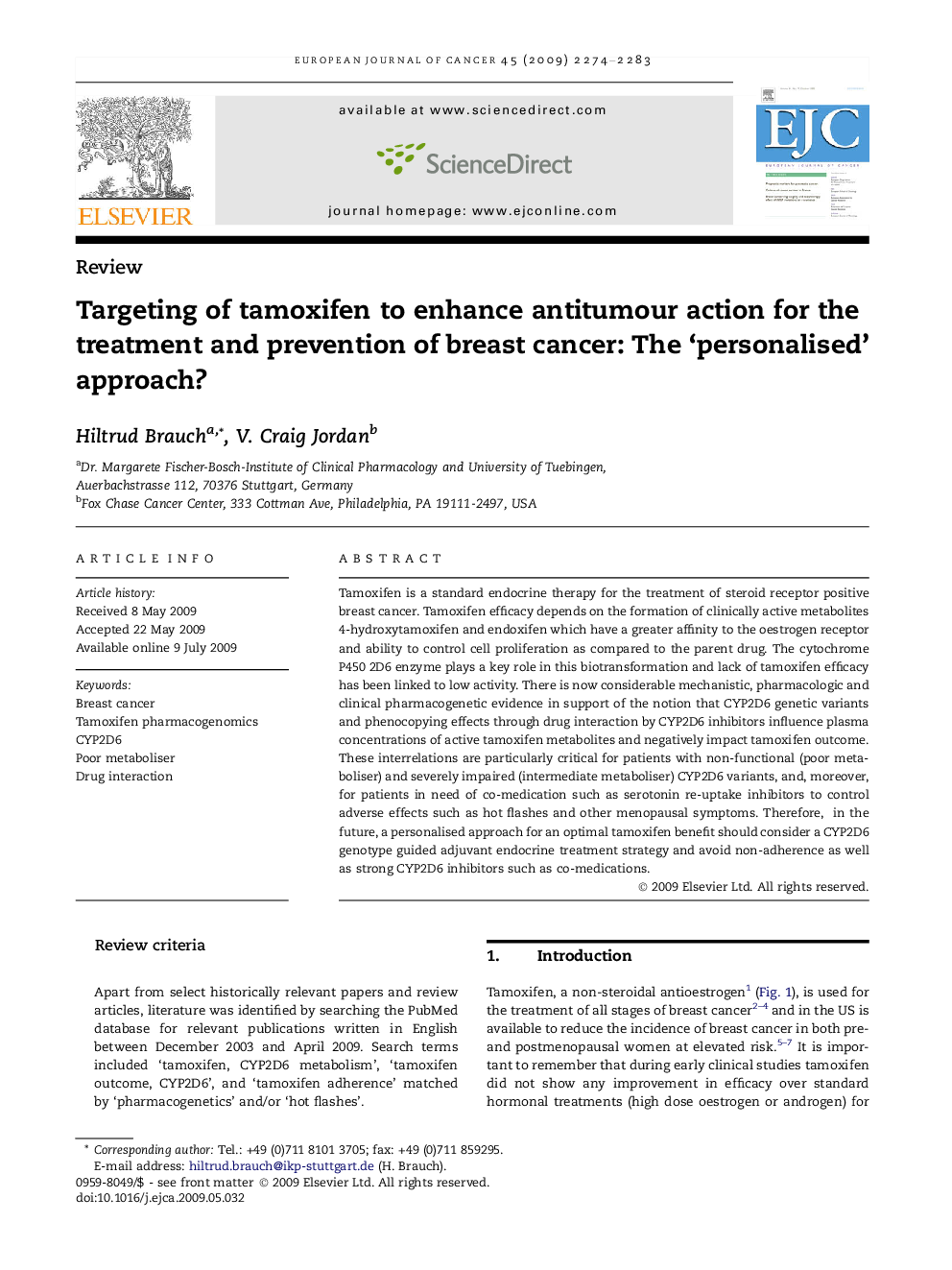| Article ID | Journal | Published Year | Pages | File Type |
|---|---|---|---|---|
| 2123917 | European Journal of Cancer | 2009 | 10 Pages |
Abstract
Tamoxifen is a standard endocrine therapy for the treatment of steroid receptor positive breast cancer. Tamoxifen efficacy depends on the formation of clinically active metabolites 4-hydroxytamoxifen and endoxifen which have a greater affinity to the oestrogen receptor and ability to control cell proliferation as compared to the parent drug. The cytochrome P450 2D6 enzyme plays a key role in this biotransformation and lack of tamoxifen efficacy has been linked to low activity. There is now considerable mechanistic, pharmacologic and clinical pharmacogenetic evidence in support of the notion that CYP2D6 genetic variants and phenocopying effects through drug interaction by CYP2D6 inhibitors influence plasma concentrations of active tamoxifen metabolites and negatively impact tamoxifen outcome. These interrelations are particularly critical for patients with non-functional (poor metaboliser) and severely impaired (intermediate metaboliser) CYP2D6 variants, and, moreover, for patients in need of co-medication such as serotonin re-uptake inhibitors to control adverse effects such as hot flashes and other menopausal symptoms. Therefore, in the future, a personalised approach for an optimal tamoxifen benefit should consider a CYP2D6 genotype guided adjuvant endocrine treatment strategy and avoid non-adherence as well as strong CYP2D6 inhibitors such as co-medications.
Related Topics
Life Sciences
Biochemistry, Genetics and Molecular Biology
Cancer Research
Authors
Hiltrud Brauch, V. Craig Jordan,
